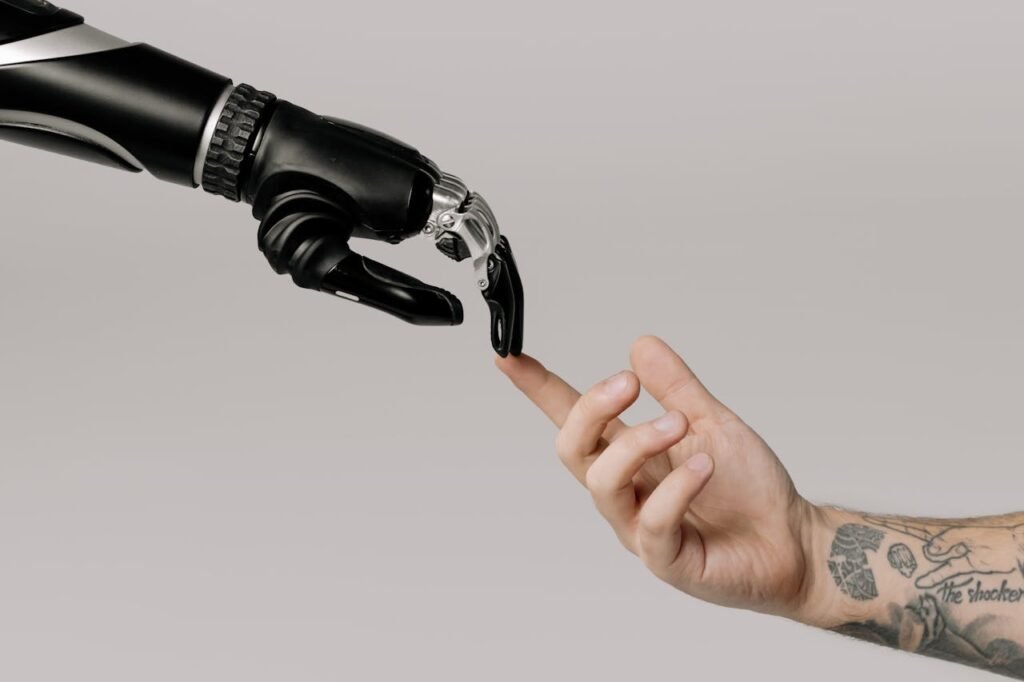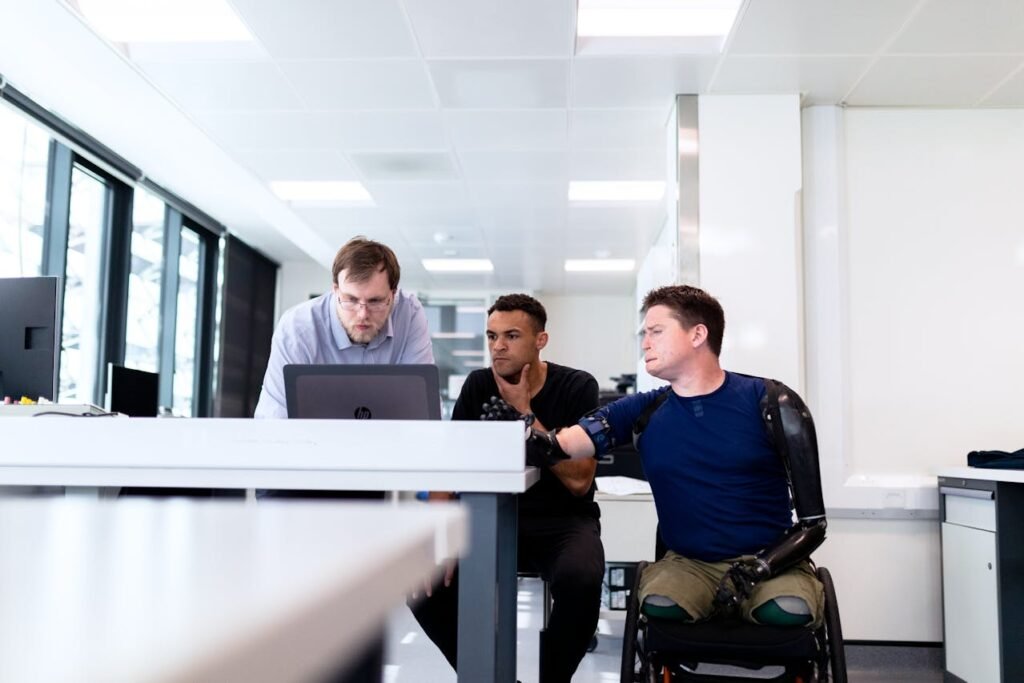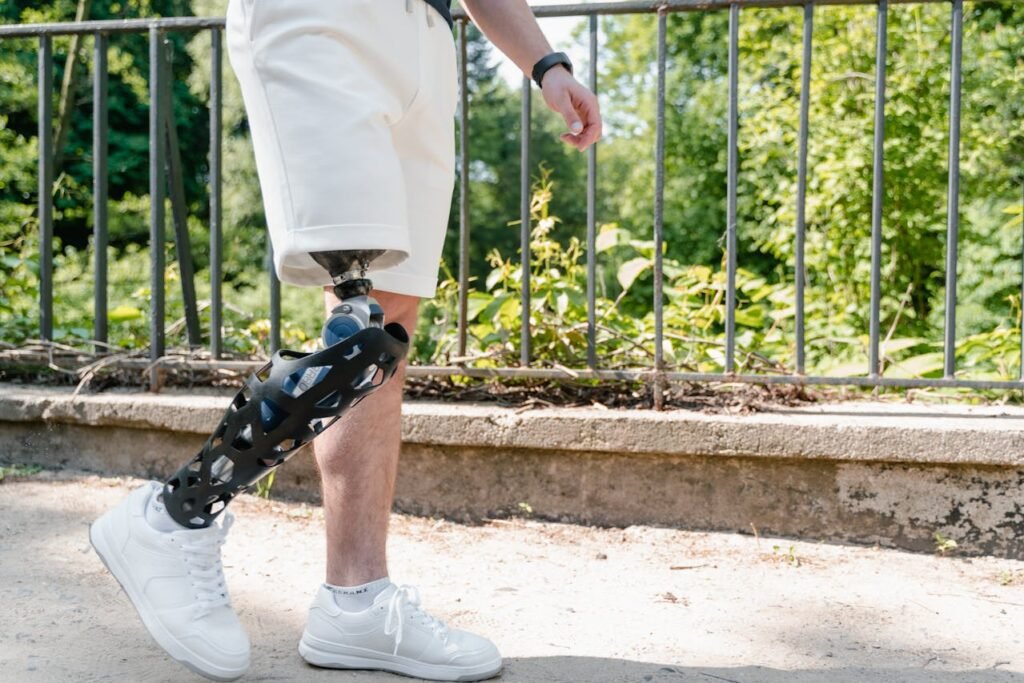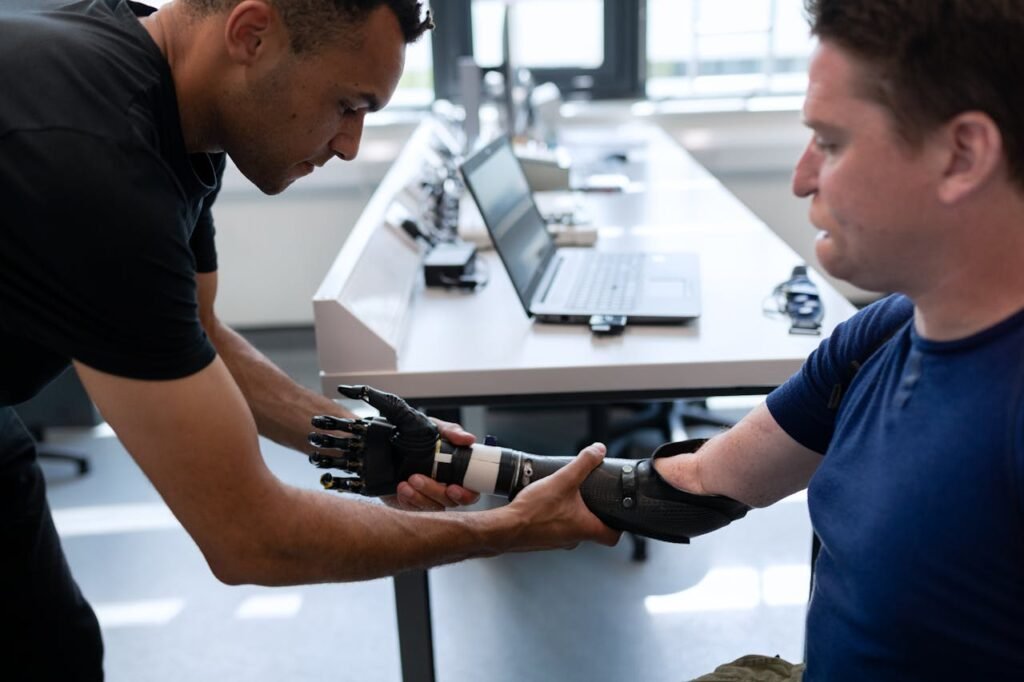Prosthetic devices are transformative tools that restore independence and improve quality of life for individuals living with limb loss. However, the cost of these devices can often feel overwhelming, leaving many people wondering how they can afford a solution that meets their needs. Thankfully, advancements in technology, innovative manufacturing processes, and thoughtful support systems have made it possible to find high-quality prosthetic solutions without breaking the bank.
What Makes Prosthetics Affordable?
The affordability of a prosthetic device depends on several factors, including the materials used, the level of technology integrated, and the design complexity.
While advanced prosthetics equipped with cutting-edge features often come with a higher price tag, budget-friendly options can still offer excellent functionality and comfort by focusing on essential features.
Cost-Effective Materials
One of the primary ways manufacturers reduce the cost of prosthetics is by using economical yet durable materials. Instead of premium composites like carbon fiber, budget-friendly prosthetics may incorporate lightweight aluminum or reinforced plastics.
These materials provide reliable strength while keeping production costs manageable.
For businesses, it’s important to communicate the benefits of these materials to users. Highlighting their durability, low maintenance, and comfort can help users feel confident in their choice without equating lower cost with lower quality.

Simplified Designs
Affordable prosthetic solutions often prioritize simplicity in their design. By focusing on basic functionality and reducing the complexity of components, manufacturers can create devices that are easy to use and maintain.
For example, a mechanical knee joint may be more budget-friendly than a microprocessor-controlled alternative while still offering essential stability and mobility.
Businesses should emphasize how simplified designs can benefit users by reducing the learning curve and providing dependable performance for everyday activities.
Offering hands-on demonstrations or trials allows potential buyers to experience these advantages firsthand.
Scaling Solutions for Broader Accessibility
Scaling production is another way to make prosthetics more affordable. By producing standardized components that can be used across multiple models or customized for specific needs, businesses can benefit from economies of scale.
This approach reduces the per-unit cost of production while maintaining the flexibility needed to cater to individual users.
For businesses, promoting the versatility of scaled solutions can help attract a wider audience. Emphasizing that affordable prosthetics don’t mean “one-size-fits-all” but rather “designed for everyone” ensures potential buyers feel seen and understood.
Offering workshops or demonstrations that showcase how scaled solutions retain personalization reinforces their appeal.
Scalable Manufacturing
Advances in scalable manufacturing techniques, such as 3D printing, have significantly lowered production costs for prosthetics. This technology allows manufacturers to produce custom-fit devices quickly and affordably, ensuring that budget-conscious buyers receive personalized solutions without compromising on quality.
For businesses, adopting scalable manufacturing processes can expand access to affordable prosthetics while maintaining profitability.
Highlighting the speed and precision of these techniques in marketing materials can appeal to users seeking cost-effective and timely solutions.
Leveraging Efficient Design Principles
The design phase is a critical opportunity to influence the cost of a prosthetic device. Simplified designs that emphasize core functionality not only reduce manufacturing complexity but also enhance user accessibility.
For example, a mechanical limb with a streamlined joint system may forgo advanced electronics in favor of robust and straightforward performance, making it both cost-effective and user-friendly.
Businesses should consider modular approaches to design, allowing individual components to be produced and replaced independently. This reduces the need for extensive overhauls or entire device replacements, offering users greater flexibility at a lower long-term cost.
Highlighting the durability and ease of maintenance of these designs during consultations can reinforce their value to potential buyers.
Streamlining the Production Process
In addition to material and design considerations, streamlining the production process itself is essential for affordability. Simplified workflows, from prototyping to assembly, reduce labor costs and shorten production timelines.
For example, leveraging automation in certain stages of manufacturing can minimize human error and improve consistency, ensuring high-quality output at a reduced cost.

Businesses should focus on establishing partnerships with suppliers and distributors that align with their affordability goals. Collaborating with logistics providers to optimize supply chains or implementing just-in-time inventory systems can further reduce overhead costs.
Sharing these efficiency-focused practices with customers demonstrates a commitment to delivering value without compromising quality.
Optimizing Material Choices
The selection of materials plays a significant role in determining the affordability of prosthetics. While high-end materials like carbon fiber or titanium offer superior performance, alternatives such as reinforced polymers or lightweight aluminum provide a cost-effective balance of strength and functionality.
Advances in material science have further expanded the range of options, enabling manufacturers to achieve affordability without compromising durability or aesthetics.
For businesses, transparent communication about material choices is crucial. Educating buyers about the trade-offs and advantages of different materials builds trust and positions the company as a knowledgeable partner.
Offering side-by-side comparisons or real-world examples of how various materials perform can help buyers make confident decisions aligned with their budget and lifestyle.
Reducing Waste Through Precision Manufacturing
Manufacturing efficiency directly impacts the affordability of prosthetic devices. Techniques like 3D printing and CNC machining allow for precise production with minimal material waste.
These processes enable manufacturers to create highly customized prosthetics while keeping costs down, as only the necessary materials are used in each component’s creation.
For businesses, investing in precision manufacturing technologies can unlock new levels of scalability and cost savings. Marketing these capabilities as part of a commitment to sustainability and affordability appeals to both budget-conscious buyers and environmentally aware consumers.
Highlighting the speed and accuracy of these methods also helps build confidence in the quality of the final product.
Exploring Affordable Prosthetic Options
Affordability doesn’t mean sacrificing functionality or comfort. The prosthetics market offers a wide range of options designed to meet the needs of budget-conscious buyers while ensuring quality and usability. Let’s explore some of these options and how they cater to different requirements.
Basic Limb Prosthetics
Basic limb prosthetics are an excellent choice for individuals who prioritize functionality and simplicity. These devices are designed to restore fundamental movements, such as walking or stabilizing objects, and are often built with durable, cost-effective materials.
For businesses, positioning basic limb prosthetics as reliable solutions for everyday use can resonate with buyers seeking practical options. Providing success stories or testimonials from satisfied users reinforces the value of these devices.
Body-Powered Prosthetics
Body-powered prosthetics use the user’s physical movements, such as shoulder or chest motions, to control the device. These prosthetics are mechanically driven, making them more affordable than electrically powered alternatives while still offering excellent functionality for certain tasks.
Businesses can promote body-powered prosthetics as a cost-effective solution for users with active lifestyles or those seeking devices for work-related activities. Demonstrating their ease of use and dependability in real-world scenarios helps build trust and interest.

Modular Prosthetics
Modular prosthetics are another affordable option, allowing users to replace or upgrade individual components rather than investing in an entirely new device. This flexibility reduces long-term costs and ensures that the prosthetic can adapt to changing needs or preferences.
For businesses, emphasizing the financial benefits of modular systems can appeal to budget-conscious buyers. Offering guidance on compatible components and providing transparent pricing ensures that users feel supported throughout their prosthetic journey.
Financing Options for Affordable Prosthetics
While budget-friendly prosthetics have made these devices more accessible, the upfront cost can still be a hurdle for many individuals. Fortunately, a variety of financing options and support systems are available to help users obtain the prosthetic solutions they need. Understanding these options can make the journey to acquiring a prosthetic more manageable and less stressful.
Government and Insurance Support
Many countries, including India, offer government programs or subsidies to assist individuals with limb loss in acquiring prosthetic devices. These programs often cover a portion of the cost or provide prosthetics at reduced rates through public healthcare systems.
Insurance providers may also offer partial or full coverage, depending on the policy and the type of prosthetic required.
For businesses, partnering with government initiatives and insurance providers can help bridge the affordability gap for users. By offering assistance with documentation or navigating the claims process, companies can position themselves as reliable and supportive partners.
Educating users about available subsidies or insurance coverage during consultations can also build trust and increase accessibility.
Payment Plans and Financing Options
To ease the financial burden, many prosthetic manufacturers and distributors offer flexible payment plans. These plans allow buyers to spread the cost of a prosthetic over several months or years, making it more manageable for individuals with limited budgets.
Businesses that provide financing options should clearly communicate the terms, interest rates, and benefits of these plans. Simplifying the application process and offering transparent pricing can make these options more appealing to buyers.
Highlighting the affordability of monthly payments compared to the long-term benefits of prosthetic ownership can also encourage decision-making.
Non-Profit and Charity Programs
Non-profit organizations and charities often play a significant role in providing affordable prosthetics to those in need. These groups may donate prosthetics, subsidize costs, or offer programs to help users access high-quality devices at little to no cost.
Businesses can collaborate with these organizations to expand their reach and make their prosthetics available to underserved populations. Sponsoring charitable initiatives or creating donation programs demonstrates corporate social responsibility and strengthens brand reputation.
Crowdfunding and Community Support
In recent years, crowdfunding has emerged as a powerful tool for individuals seeking assistance with medical expenses, including prosthetics. Platforms like GoFundMe allow users to share their stories and gather financial support from friends, family, and the broader community.
Businesses can encourage buyers to explore crowdfunding as a viable option for financing their prosthetic device. Providing guidance on creating compelling campaigns or connecting users with success stories can inspire confidence and motivation.
Actionable Advice for Buyers
Navigating the world of prosthetics can feel overwhelming, especially for first-time buyers. Understanding your options, evaluating your needs, and asking the right questions can help you make a confident and informed decision. Here are some actionable steps to consider when searching for an affordable prosthetic solution.
Assess Your Priorities
Before choosing a prosthetic, take time to evaluate your specific needs and goals. Consider factors such as your daily activities, mobility requirements, and long-term objectives.
For example, if you prioritize stability and simplicity for basic tasks, a mechanical or body-powered prosthetic may be the right fit. If versatility and adaptability are more important, a modular prosthetic might be a better choice.
Buyers should also think about their budget and explore financing options early in the process. Speaking openly with prosthetic providers about cost considerations ensures that you receive guidance tailored to your circumstances.

Research and Compare Options
Investing time in research is crucial for finding the best prosthetic within your budget. Compare devices based on their features, materials, and reputation for durability. Look for reviews or testimonials from other users, and don’t hesitate to ask providers for references or case studies.
For businesses, offering transparent product comparisons and detailed explanations of features can help buyers make informed decisions. Providing trial periods or product demonstrations gives users the confidence to choose a prosthetic that suits their needs.
Advocate for Customization
Even within the realm of affordable prosthetics, customization is essential for achieving a comfortable and functional fit. Ensure that your chosen provider offers personalized fittings and adjustments to optimize the prosthetic for your body and lifestyle.
A well-fitted device can significantly enhance comfort, reduce irritation, and improve overall performance.
Businesses should prioritize user education on the importance of customization, explaining how adjustments can maximize the value of an affordable prosthetic. Investing in training for clinicians to ensure precise fittings enhances user satisfaction and builds trust.
Prioritize Maintenance and Support
Owning a prosthetic device involves ongoing maintenance to ensure longevity and optimal performance. When evaluating providers, inquire about their support services, such as regular check-ups, repairs, or access to replacement parts.
Choosing a provider that offers comprehensive post-purchase care can save time and money in the long run.
Businesses can distinguish themselves by creating user-friendly maintenance programs or offering subscription plans for routine servicing. Highlighting these benefits during consultations demonstrates a commitment to long-term user success.
The Future of Affordable Prosthetics
The prosthetics industry is constantly evolving, with new technologies and approaches reshaping what is possible. The future of affordable prosthetics is bright, driven by advancements that aim to lower costs while improving functionality, comfort, and accessibility. For businesses, staying ahead of these trends presents a significant opportunity to innovate and meet the needs of budget-conscious buyers.
Advances in Manufacturing
Innovative manufacturing techniques, such as 3D printing, are revolutionizing the production of prosthetics. By significantly reducing the time and materials needed to create custom prosthetics, 3D printing makes it possible to offer highly personalized solutions at a fraction of traditional costs.
For businesses, adopting 3D printing technology allows for scalable production and rapid prototyping, enabling them to respond quickly to customer needs.
Marketing these benefits to buyers—such as quicker turnaround times and precise fits—reinforces the value of choosing a 3D-printed prosthetic.

Emerging Materials
The development of new, cost-effective materials is another key driver in making prosthetics more affordable. Lightweight, durable plastics and composites offer an excellent alternative to expensive metals or premium materials like carbon fiber.
These materials are not only budget-friendly but also reduce the weight of prosthetics, improving user comfort.
Businesses that incorporate emerging materials should emphasize their durability, ease of maintenance, and environmental benefits. Educating users on how these materials perform in real-world conditions helps establish trust and highlights the practical advantages of choosing an affordable solution.
Modular Systems and Interchangeable Components
As mentioned earlier, modular prosthetics are playing an increasingly important role in affordability. By allowing users to replace specific components instead of purchasing entirely new devices, modular systems provide a cost-efficient way to adapt to changing needs.
The future of modular prosthetics lies in further expanding compatibility and versatility. Businesses can invest in developing systems with universal connectors or standardized designs that allow components from different models to work together.
Promoting these systems as long-term, flexible solutions helps users see the value in modularity.
Digital Integration and Remote Services
Digital technology is transforming how prosthetic care is delivered. Remote diagnostics, virtual consultations, and app-based support tools are making it easier for users to access affordable care without the need for frequent in-person visits.
For businesses, integrating digital platforms into their offerings can reduce overhead costs while improving user satisfaction. Providing buyers with tools to monitor their prosthetic’s performance, schedule maintenance, or access tutorials empowers them to take charge of their care.
Highlighting these digital benefits in marketing efforts appeals to tech-savvy customers and reinforces a forward-thinking brand image.
The Role of Innovation in Lowering Costs
Innovation is at the heart of making prosthetics more accessible and affordable. By rethinking traditional approaches and leveraging cutting-edge technology, the industry can continue to drive down costs without compromising quality or functionality.
Collaborative Development
Partnerships between manufacturers, researchers, and non-profit organizations are paving the way for breakthroughs in affordable prosthetics. Collaborative efforts allow businesses to pool resources, share knowledge, and test new ideas in real-world settings.
For example, partnerships with academic institutions may result in novel designs or materials that reduce production costs.
Businesses that actively engage in collaborative development should share these initiatives with their customers. Highlighting a commitment to innovation and community impact can resonate strongly with buyers, reinforcing trust and credibility.
Simplifying Design Without Sacrificing Quality
One way to lower costs is by simplifying the design of prosthetic devices while maintaining essential features. Streamlined designs focus on core functionality, removing non-essential elements that may increase complexity and cost.
For example, a body-powered arm prosthetic with a mechanical joint can offer reliable performance without the expense of electronic components.
For businesses, it’s essential to communicate that affordability doesn’t equate to reduced quality. Emphasizing the practicality and durability of simplified designs ensures that buyers feel confident in their investment. Demonstrations or user testimonials can further reinforce these points.

Open-Source Designs
The open-source movement is also contributing to the affordability of prosthetics. By making blueprints, designs, and software freely available, organizations are enabling individuals and businesses to produce low-cost prosthetic solutions locally.
This approach is particularly impactful in underserved regions where access to advanced manufacturing facilities may be limited.
Businesses can support the open-source movement by collaborating on shared designs or offering affordable kits based on open-source principles. Positioning themselves as contributors to a global mission of accessibility enhances their reputation and broadens their reach.
Conclusion
Affordable prosthetic solutions are more than a necessity—they’re a pathway to independence and empowerment for individuals living with limb loss. By leveraging innovative materials, scalable manufacturing, and thoughtful design, the industry is creating accessible options that don’t compromise on quality or functionality.
For buyers, understanding the wide range of affordable prosthetic options, exploring financing solutions, and advocating for customization ensures a successful and fulfilling experience.
Businesses, on the other hand, have the opportunity to lead by embracing new technologies, building strong customer relationships, and collaborating to advance the field.
At Robobionics, we’re committed to making high-quality prosthetics accessible to everyone. By combining innovation with empathy, we’re creating solutions that empower individuals to live fully, confidently, and affordably.




Pingback: Upgrade Your Life: The Perfect Phone for Every Need